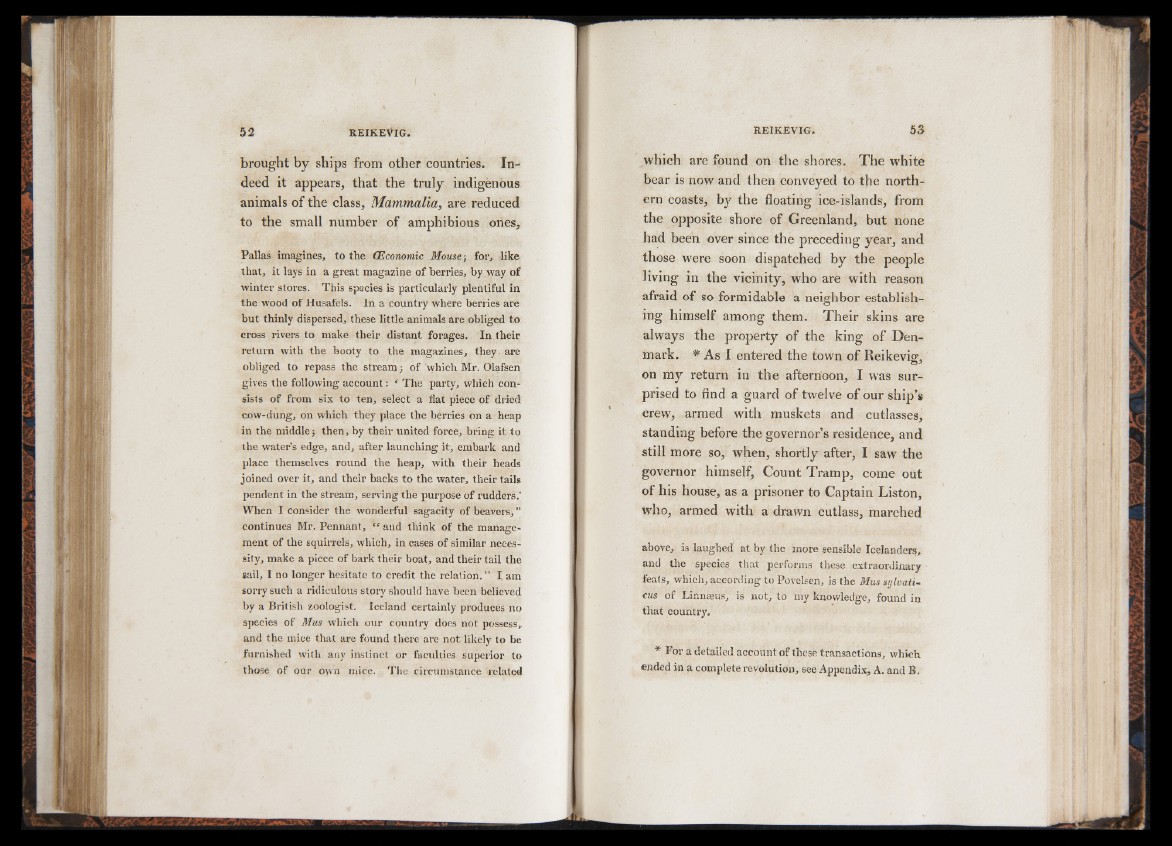
brought by ships from other countries. Indeed
it appears, that the truly indigenous
animals of the class, Mammalia, are reduced
to the small number of amphibious ones,
Pallas imagines, to the (Economic Mouse-, for, like
that, it lays in a great magazine of berries, by way of
winter stores. This species is particularly plentiful in
the wood of Husafels. In a country where berries are
but thinly dispersed, these little animals are obliged to
cross rivers to make their distant forages. In their
return with the booty to the magazines, they, are
obliged to re pass the stream; of 'which Mr. Olafsen
gives the following account: c The party, which consists
of from six to ten, select a flat piece of dried
cow-dung, on which they place the berries on a heap
in the middle; then, by their united force, bring it to
the water’s edge, and, after launching it, embark and
place themselves round the heap, with their heads
joined over it, and their backs to the water, their tails
pendent in the stream, serving the purpose of rudders.’
When I consider the wonderful sagacity of beavers,"
continues Mr. Pennant, “ and think of the management
of the squirrels, which, in cases of similar necessity,
make a piece of bark their boat, and their tail the
sail, I no longer hesitate to credit the relation.” I am
sorry such a ridiculous story should have been believed
by a British zoologist. Iceland certainly produces no
species of Mus which our country does not possess,,
and the mice that are found there are not likely to be
furnished with any instinct or faculties superior to
those of our o\vn mice. The circumstance related
which are found on the shores. The white
bear is now and then conveyed to the northern
coasts, by the floating ice-islands, from
the opposite shore of Greenland, but none
had been over since the preceding year, and
those were soon dispatched by the people
living in the vicinity, who are with reason
afraid of so formidable a neighbor establishing
himself among them. Their skins are
always the property of the king of Denmark.
* As I entered the town of Reikevio’,
on my return in the afternoon, I was surprised
to find a guard of twelve of our ship’s
crew, armed with muskets and cutlasses,
standing before the governor’s residence, and
«till more so, when, shortly after, I saw the
governor himself, Count Tramp, come out
of his house, as a prisoner to Captain Liston,
who, armed with a drawn cutlass, marched
above, is laughed at by the more sensible Icelanders,
and the species that performs these extraordinary
feats, which, according to Povelsen, is the Mus sylvati-
cus of Linnaeus, is not, to my knowledge, found in
that country.
* For a detailed account of these transactions, which
ended in a complete revolution, see Appendix, A. and B.